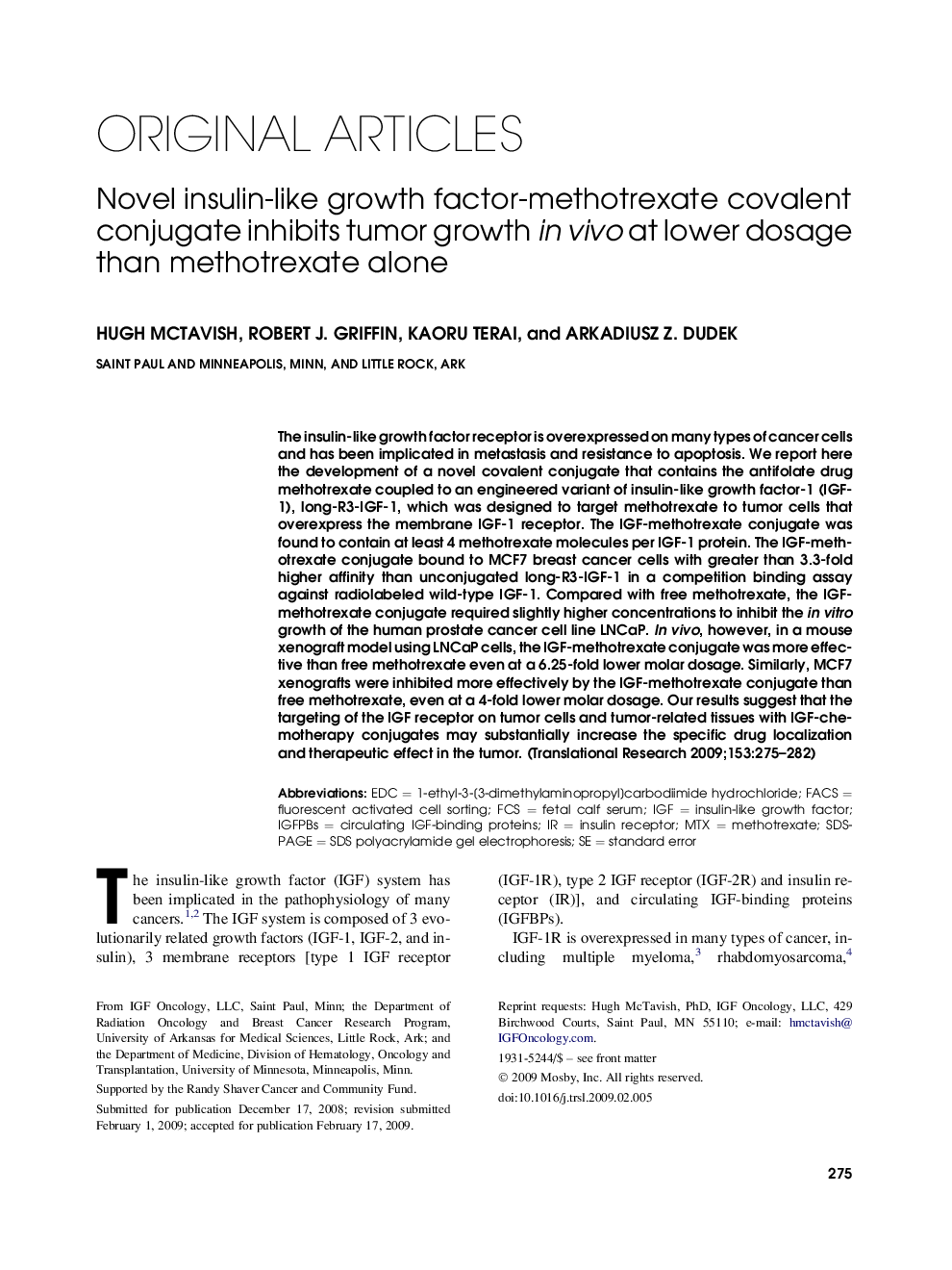| Article ID | Journal | Published Year | Pages | File Type |
|---|---|---|---|---|
| 3841051 | Translational Research | 2009 | 8 Pages |
The insulin-like growth factor receptor is overexpressed on many types of cancer cells and has been implicated in metastasis and resistance to apoptosis. We report here the development of a novel covalent conjugate that contains the antifolate drug methotrexate coupled to an engineered variant of insulin-like growth factor-1 (IGF-1), long-R3-IGF-1, which was designed to target methotrexate to tumor cells that overexpress the membrane IGF-1 receptor. The IGF-methotrexate conjugate was found to contain at least 4 methotrexate molecules per IGF-1 protein. The IGF-methotrexate conjugate bound to MCF7 breast cancer cells with greater than 3.3-fold higher affinity than unconjugated long-R3-IGF-1 in a competition binding assay against radiolabeled wild-type IGF-1. Compared with free methotrexate, the IGF-methotrexate conjugate required slightly higher concentrations to inhibit the in vitro growth of the human prostate cancer cell line LNCaP. In vivo, however, in a mouse xenograft model using LNCaP cells, the IGF-methotrexate conjugate was more effective than free methotrexate even at a 6.25-fold lower molar dosage. Similarly, MCF7 xenografts were inhibited more effectively by the IGF-methotrexate conjugate than free methotrexate, even at a 4-fold lower molar dosage. Our results suggest that the targeting of the IGF receptor on tumor cells and tumor-related tissues with IGF-chemotherapy conjugates may substantially increase the specific drug localization and therapeutic effect in the tumor.
